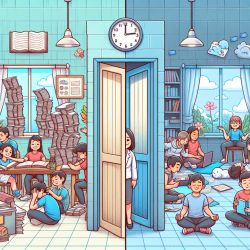Understanding Parent Perceptions of School Meals During COVID-19
The COVID-19 pandemic introduced unprecedented challenges in various sectors, including education and nutrition. The study titled Parent Perception of School Meals in the San Joaquin Valley during COVID-19: A Photovoice Project sheds light on how parents viewed school meal programs during this period. This research is particularly insightful for practitioners aiming to enhance the effectiveness of school meal programs.
Key Findings from the Research
Conducted in California's San Joaquin Valley, a region predominantly composed of Latino farmworker communities, the study utilized the Photovoice methodology. Parents photographed school meals over a week and participated in focus group discussions. Three primary themes emerged:
- Benefits of School Meal Distribution: Parents appreciated the grab-and-go meal distribution, which was convenient and adhered to COVID-19 safety protocols. It also provided financial relief during challenging times.
- Meal Quality and Appeal: Many parents found the meals unappealing and unhealthy, leading to significant food waste. Common complaints included meals being soggy, greasy, or visually unappetizing.
- Perceived Healthfulness: Parents were concerned about the high sugar content and lack of nutritional value in meals, fearing it could negatively impact their children's health and eating habits.
Implications for Practitioners
For practitioners in speech-language pathology and related fields, understanding the context of a child's nutrition is crucial. Poor nutrition can affect cognitive development and speech-language outcomes. Here are some data-driven recommendations based on the study:
- Advocate for Nutritional Improvements: Engage with school districts to push for healthier meal options that align with dietary guidelines. This can improve participation and reduce food waste.
- Encourage Parental Involvement: Facilitate workshops or discussions that empower parents to voice their concerns and suggestions to school administrators.
- Collaborate with Nutritionists: Work with nutrition experts to develop meal plans that are both appealing and nutritious, ensuring they meet the diverse needs of students.
Encouraging Further Research
The study highlights the importance of continuous research in understanding and improving school meal programs. Practitioners are encouraged to explore further how nutritional quality impacts children's learning and development. Collaboration with researchers can provide valuable insights and drive policy changes that benefit children's health and education.
To read the original research paper, please follow this link: Parent Perception of School Meals in the San Joaquin Valley during COVID-19: A Photovoice Project.










